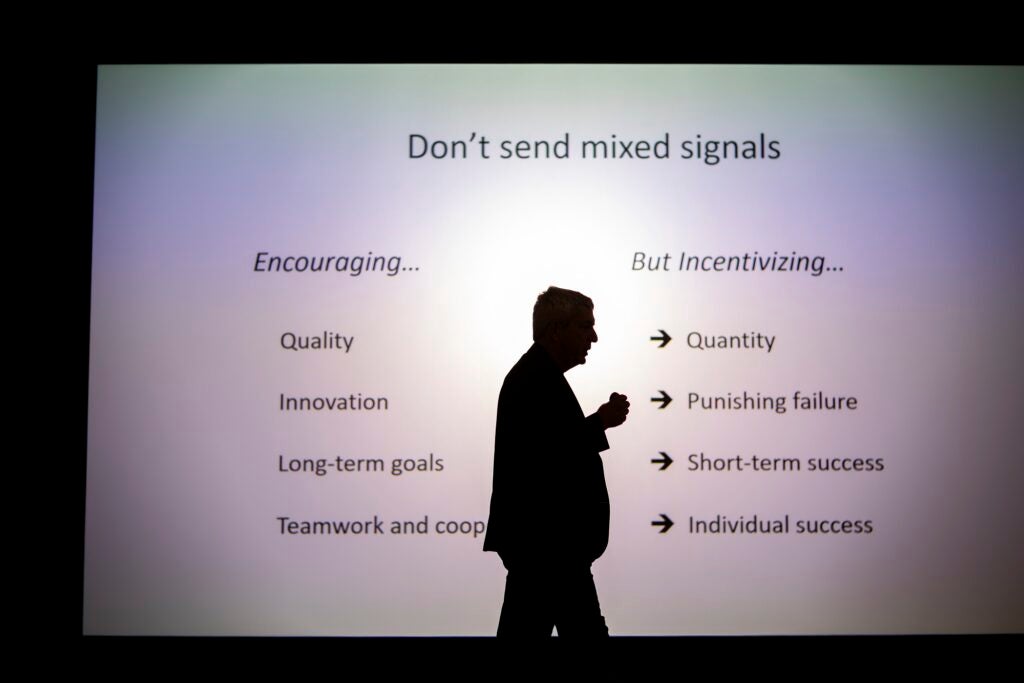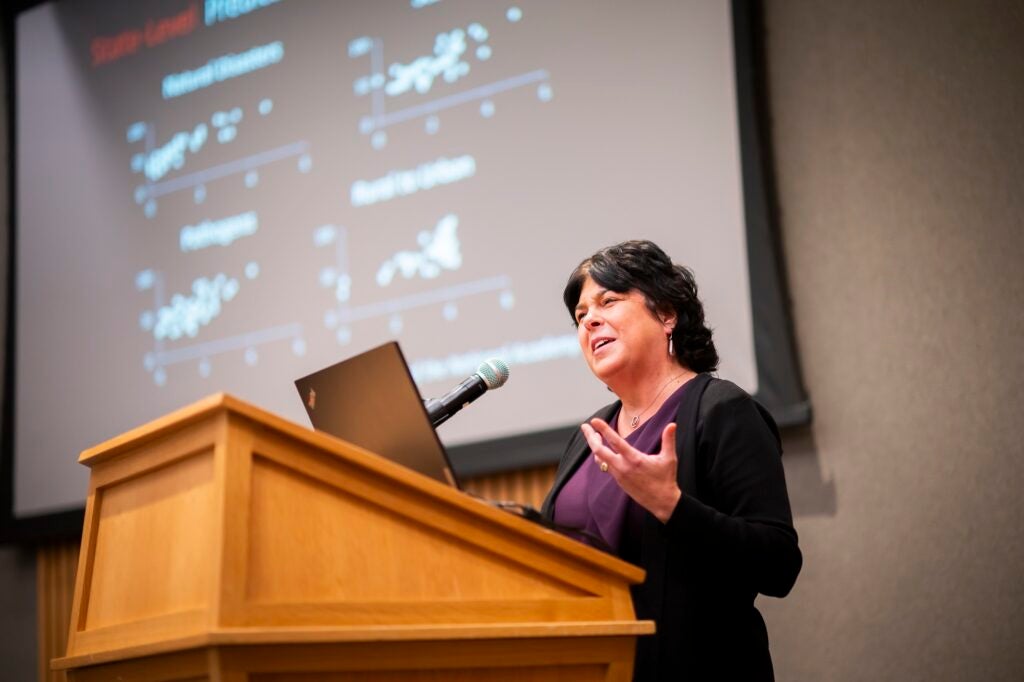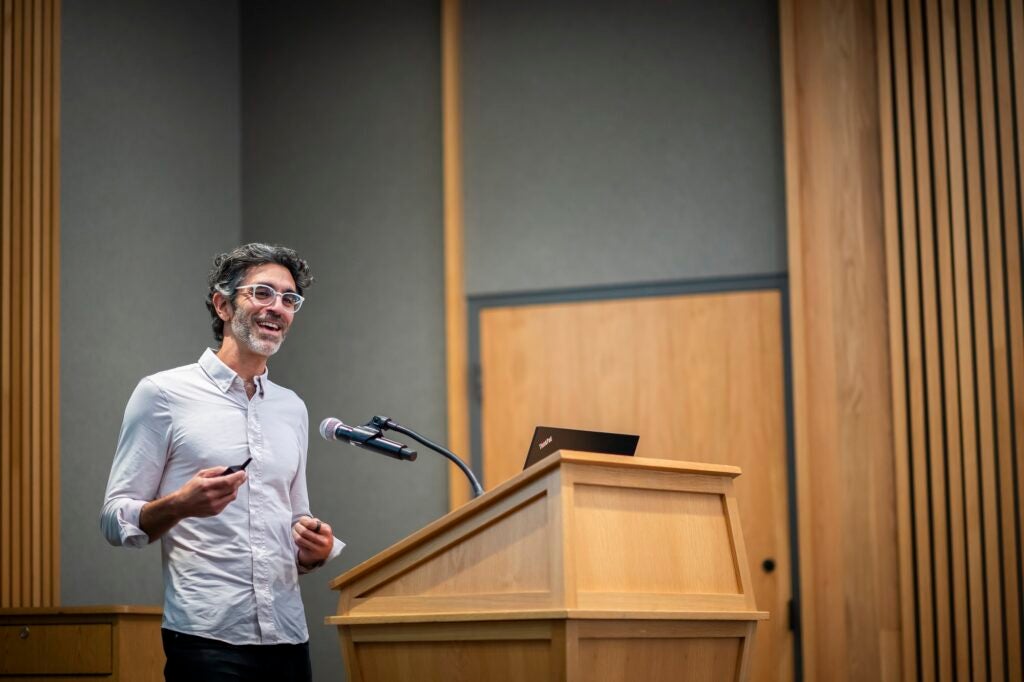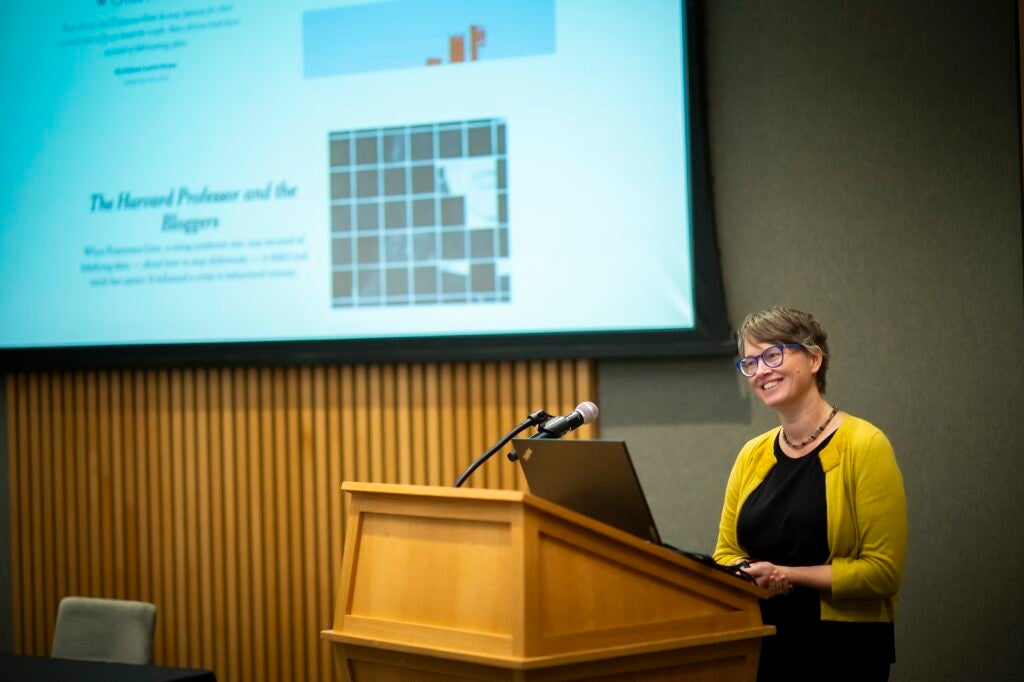CHIBE holds 2023 Behavioral Science and Health Symposium

The Center for Health Incentives and Behavioral Economics (CHIBE) welcomed economists, clinicians, and academics from around the globe to Penn for a two-day symposium on behavioral science and health.
This year, the symposium featured three keynote speakers: Uri Gneezy, PhD; Michele Gelfand, PhD; and Ziad Obermeyer, MD; and nine research presentations on topics varying from chronic disease management among postpartum people, to race and the criminalization of addiction, to sex bias in pain management. CHIBE Scientific Director Alison Buttenheim, PhD, MBA, also presented findings from the recent National Academies’ consensus report on behavioral economics and health and its policy impact and future directions. Symposium attendees also heard a panel discussion on behavioral intervention scalability.
On night one at the Penn Museum, Dr. Gneezy presented his keynote presentation on mixed signals and how incentives really work. (Dr. Gneezy recently published a book on this topic, which can be found here.) He talked about how some organizations might try to encourage equality but actually incentivize quantity, encourage innovation but punish failure, or encourage long-term goals but incentivize short-term success. He referenced some of the COVID vaccine lotteries that offered thousands of dollars to get vaccinated and suggested that this type of large financial incentive might send a message to people that there’s something potentially wrong with the vaccine. He argued that when using an incentive, we should make sure that the signal it’s sending is aligned with your goals.

On day two at The Study at University City, Dr. Gelfand opened the event with a presentation on interdisciplinary perspectives on the strength of social norms. She discussed how different cultures adhere differently to social norms – some cultures tightly adhere to them, while others are loose. For example, Singapore is a country with strong norms and punishments; the country enforces fines for behaviors such as spitting, littering, and smoking. This tight type of culture also has lower crime, more uniformity, lower debt, and more self-control. Loose cultures, like the United States, have a broader array of behaviors and is more permissive. They also have more crime and more self-regulation problems but also more tolerance and creativity. Dr. Gelfand argued that extremes in either direction can be problematic. (Take the quiz on Dr. Gelfand’s website to see how you personally fall on this spectrum.) Dr. Gelfand argued that looking at cultures from the perspective of loose or tight adherence to social norms can foster cross-cultural understanding.

Dr. Obermeyer closed out the event with a keynote talk on the health costs of cost-sharing. He discussed insurance design and the coverage gap or donut hole problem that encourages non-adherence and medication interruption. He also talked about how some patients might wonder if it even matters if they stop taking their medications, even though there is evidence that drugs can work on short time scales and withdrawal effects can be worse than never taking the medication (for example: discontinuing statins have large effects on heart attack and stroke size). Dr. Obermeyer argued that cost-sharing causes mortality increases and that the patients who need drugs the most are also cutting back the most. He called for more research into the psychology of drug taking beyond costs and frictions.

Thank you to the symposium steering committee members (John Beshears, PhD; Alia Crum, PhD; Jeff Linder, MD, MPH, FACP; Katy Milkman, PhD; Kevin Volpp, MD, PhD; Silvia Saccardo, PhD; and Sally Sadoff, PhD) and event organizers Samantha Fellman and Joelle Friedman, MPA.




Photos courtesy of Eric Sucar